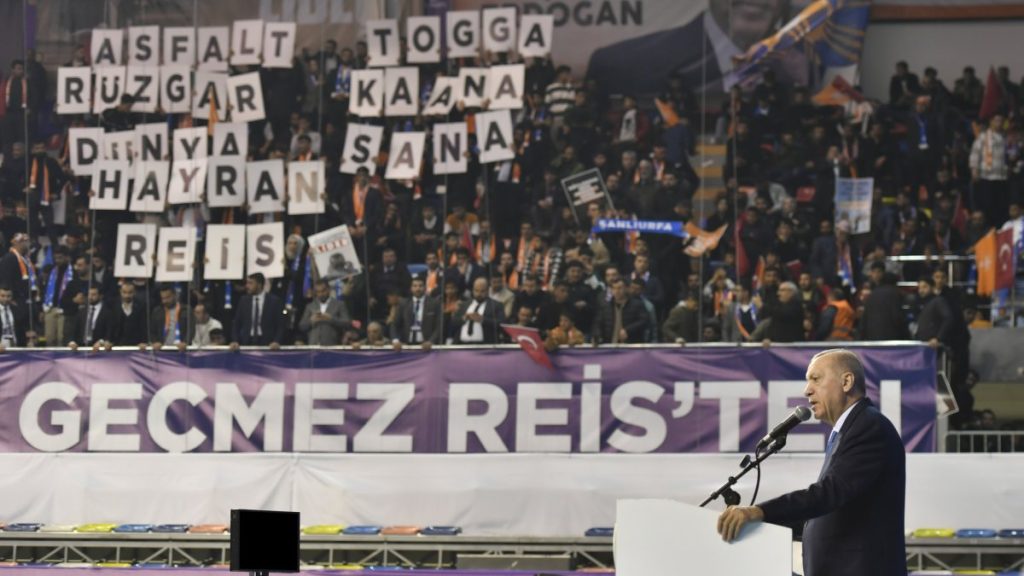The Justice and Development Party (AK Party), led by President Recep Tayyip Erdoğan, is counting down to its eighth grand congress, which is planned for Feb. 23. The Congress will see changes in cadres, political discourse and party declarations.
The AK Party, which will conduct the congress process with the motto of “next-generation politics,” has already brought new life to Türkiye’s political scene since 2002, quickly standing out amid stalwarts that ruled the country with coalition governments for years.
This “next-generation politics” is more visible with significant changes in cadres. About 75% of provincial chairs of the party were replaced, while more than half of district chairs handed over their duties to new names during the process, which began after last year’s municipal elections. The party’s Central Decision-Making and Administrative Committee (MKYK) is expected to have its fair share of changes, and at least half of its members are expected to be replaced. Erdoğan had earlier instructed his lieutenants to work on rejuvenation of the cadres. The number of younger members and women in administrative cadres has significantly increased in intraparty reshuffles since last year. The party also seeks to adhere to the rule of having at least 30% of cadres in provincial and district branches be composed of female members.
The AK Party also reviews its charter and political program during the congress process. It formed a charter committee, and unlike previous congresses, it held meetings before the grand convention to hear the ideas of members about the party’s future. So far, some 400,000 people attended those meetings and discussed the aspects of the party’s political rhetoric and program. Delegates who will attend the February congress will also be invited to the party’s headquarters in the capital, Ankara, for a two-day round table meeting where they will have their say on the issues related to the party’s workings. The party also tapped into artificial intelligence to gather data about the shortcomings of the party and to create a new, joint political discourse, and cultivated data will be shared with delegates. In conclusion, the party aims to create a new political program.
In the meantime, it is reported that Erdoğan is working to include new names to the administrative staff of the party. Erdoğan set the goal of garnering at least 50% of the vote in the next election and counts on rejuvenation in the cadres to boost the momentum.
The AK Party became a staple of Turkish politics with its all-embracing politics when it was launched more than two decades ago. Voters who endorsed left-wing or right-wing parties of the yesteryear and were disillusioned with the tumultuous era of unstable coalition governments carried the party to its first victory. In the ensuing years, the party strengthened its ranks with new transfers, welcoming prominent politicians who were once its opponents, including several from its main rival, the Republican People’s Party (CHP). Its ties with disadvantaged communities, as well as communities who were deprived of their rights by the past governments, such as Kurds, cemented the party’s place in politics.
Erdoğan last Friday promised to compensate for the AK Party’s unprecedented losses in last year’s local elections. “We will work wholeheartedly to make up for the road crash in the March 31 elections at the first possibility,” Erdoğan told supporters of the AK Party at a provincial congress in the western Denizli province.
Party members describe the congress program as “a period in which the party is growing, strengthening and fortifying its cadres.”
The municipal elections proved a challenge for the party, which failed to retake its former strongholds, such as Ankara and Istanbul, from the CHP while losing some mayoral seats to the CHP.
A general election is scheduled for 2028, while the CHP, encouraged by municipal vote gains, campaigns for an early election.


